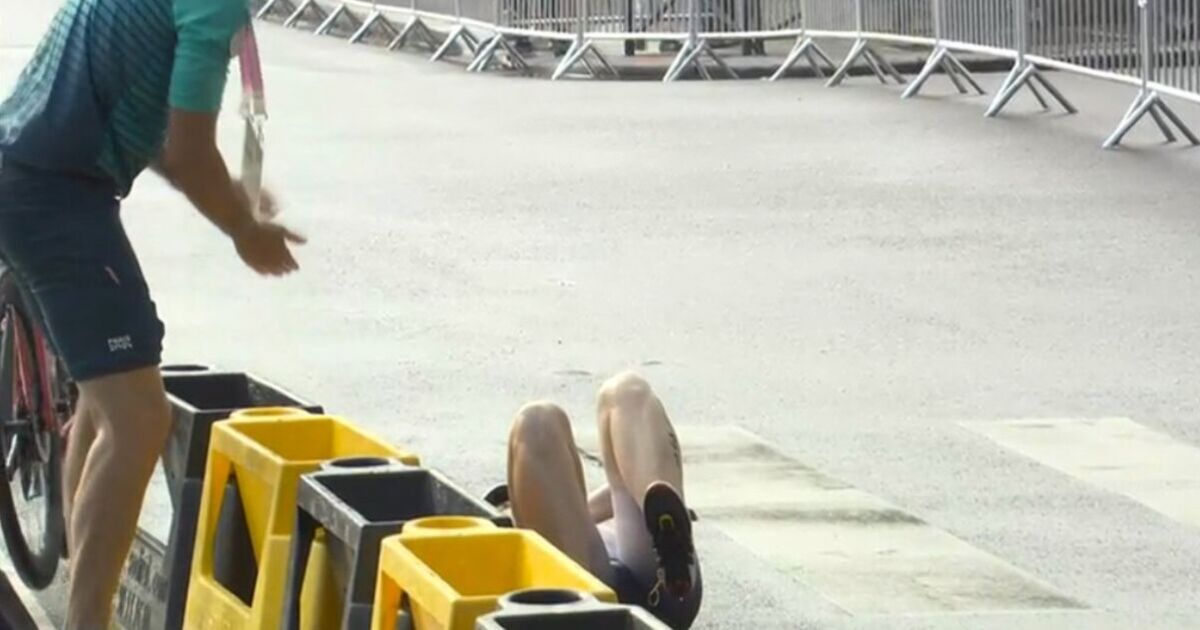Norwegian athlete Lotte Miller required medical attention after being sent flying off her bike for the second time during the women’s Olympic triathlon on Wednesday morning. The cycling leg of the race was full of nasty-looking crashes, with several riders struggling for grip on the rainy streets of Paris.
Miller got up and continued after her first crash but was unable to carry on after being sent tumbling to the ground for a second time. She looked to be in some pain after hitting the deck as police officers rushed to her aid, with Miller eventually retiring from the race.
Jorgen Gunderson, a Norwegian triathlete working as a pundit on NRK, said: “She has struggled a bit with her back and had an operation a year and a half ago. I hope it wasn’t in this area that she got hurt. I think that looks scary.”
Pick up your ultimate guide to the Olympics! Going for Gold provides the day-by-day rundown of what’s on and when. Click here to buy.
Miller was not the only rider to fall foul of the slippery asphalt after a wet start to the morning in the French capital. Several others were also sent crashing to the ground, with Jeanne Lehair of Luxembourg reduced to tears after suffering a nasty fall of her own.
Laura Lindemann of Germany also failed to stay on her bike and scraped her leg on the cobbles at a particularly tricky section of the circuit.
Former British triathlete Annie Emerson said on the BBC: “Laura Lindemann didn’t do a lot wrong there. She is a good, strong, very technical rider. There is grease on the road and that is causing the upsets that we have seen in the race. I don’t remember a race where I have seen so many athletes go down.”
It comes after the build-up to the men’s and women’s triathlons was marred by the poor water quality of the River Seine. Organisers had to cancel training earlier this week, while the men’s race was originally scheduled for Tuesday but was postponed until the river was declared safe to swim in.
Swimming in the river has been banned for over 100 years due to high levels of pollution and the risk of disease. French officials have invested heavily in making the Seine safer in preparation for the Olympics, with about £1.2billion being spent on a regeneration project.
France currently lags behind the European Union’s average score for top-quality bathing water conditions. Regular tests were carried out in the days before the men’s and women’s triathlons, with the Seine eventually being deemed safe enough for the events to proceed.











